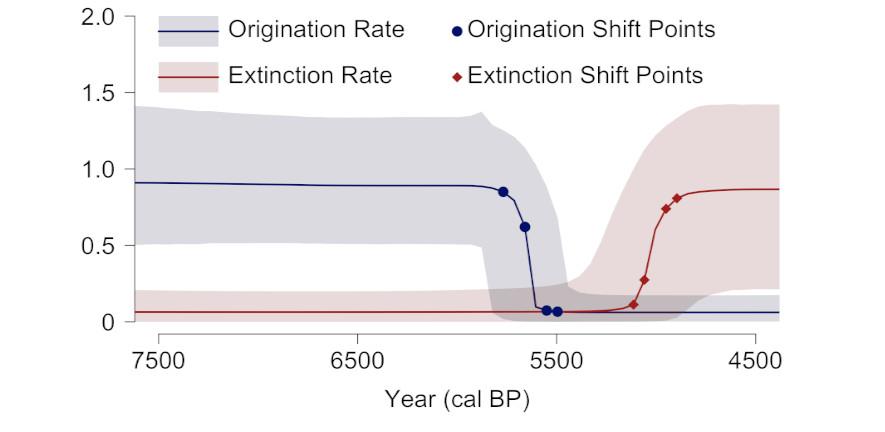
The project centres on the development and application of quantitative methods that model the emergence and extinction of technological diversity. This research builds from the premise that technological innovations can be a key mechanism for mitigating unpredictable or rapidly changing environments and examines whether innovations tends to increase or decrease during periods of stress. The methodological approach of this project aims to apply a macroevolutionary Bayesian framework to archaeological digital data that is extracted from non-traditional data sources, such as digital data repositories. Through the implementation of this method this research will 1) estimate rates of technological innovation and extinction, 2) identify the timing of the most significant changes in diversification rates, and 3) assess whether technological diversification dynamics conform to existing hypotheses of cultural change. This work will provide a valuable contribution to understanding the evolution of material culture by helping to better disentangle the relative contributions of origination and extinction, with the latter often neglected in studies of material culture. An additional contribution is the further development of a robust methodological tool box that can be used synthesise diverse forms of archaeological data including artefact typologies, radiocarbon dates, and paleo-environmental records. For example, this project will examine over 4,000 radiocarbon dates associated with pottery types from the European Neolithic, thousands of archived pottery types from the Jomon period of Japan, and millions of ceramic sherds from the American Southwest. Through the combination of a novel statistical approach and large-scale aggregated data this research is poised to contribute to our growing understanding of technological changes leading up to societal “tipping points” and the ability of societies the manage these periods of crisis.
McDonald Institute Renfrew fellowship


